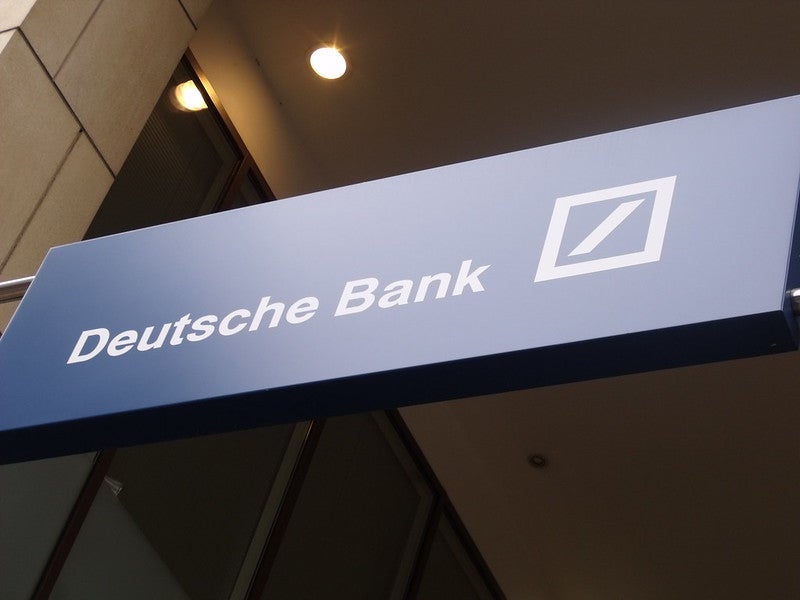
The January 2018 issue of Private Banker International (PBI) examined how private banks and wealth managers are dealing with the growing interest in cryptocurrencies. Following that article, PBI finds there is now wide support that the blockchain technology underpinning crypto digital currencies could eventually revolutionise the wealth management industry. Paul Golden explains.
It is easy to see why there is such excitement around the potential of blockchain technology.
A report co-authored in April 2017 by Jakov Agbaba, a risk analyst at Rathbones, and the investment manager’s chief investment officer, Julian Chillingworth, explained how the technology could disrupt global custody by automating the tasks performed by custodians.
Custodians safeguard the financial assets of individuals and financial institutions. They hold stocks, bonds and commodities; handle settlements of asset purchases and sales, recording changes in ownership; collect and store information on assets, record and monitor dividends as well as coupon payments on bonds; administer corporate actions; manage bank accounts; and handle foreign exchange transactions.
Agbaba and Chillingworth note that all of these roles could be performed automatically through blockchain by being written into what is known as a smart contract – an automated and self-executing agreement in the form of computer code or programme.
One of the most interesting moves between the worlds of private banking and ‘cryptobanking’ happened last November when Enrique Melero – formerly chief operating officer group private bank finance at HSBC Private Bank – was named as an adviser to Bitwala, a global blockchain-based payment service provider.
How well do you really know your competitors?
Access the most comprehensive Company Profiles on the market, powered by GlobalData. Save hours of research. Gain competitive edge.

Thank you!
Your download email will arrive shortly
Not ready to buy yet? Download a free sample
We are confident about the unique quality of our Company Profiles. However, we want you to make the most beneficial decision for your business, so we offer a free sample that you can download by submitting the below form
By GlobalDataThe CEO of Bitwala said Melero’s banking expertise and crypto knowledge would be a huge asset to Bitwala’s advisory board.
Bitwala failed to respond to requests for comment for this article. However, Daniel Murray, global head of research at EFG Bank, was more forthcoming, agreeing with the view that blockchain has the potential to generate considerable cost savings for wealth managers by replacing much of the existing (and in many cases rather dated) back office infrastructure.
Murray says: “The trusted blockchain would enable settlement and clearing to take place in a decentralised manner, rather than the current situation where every bank has its own system for ensuring each transaction is verified.”
Murray acknowledges that it will be some time before private banks fully embrace the technology, but he is encouraged by the interest being expressed by the Federal Reserve, Bank of England, Bank of Japan and other major central banks.
He suggests that adoption of blockchain across the banking sector generally – and private banks in particular – will be contingent on full support from these institutions who will eventually implement the technology as a means of supporting digital currency.
Client experience improved
Markus Mueller, global head of the chief investment office for Deutsche Bank Wealth Management, believes that at an operational level, blockchain could enhance the overall client experience at wealth managers by removing friction from the customer acquisition process, tweaking management of model portfolios and speeding the clearing and settlement of trades with much lower fees.
The platform could also automate mandatory processes, which will result in operational cost savings and reduce operational risk, while increasing efficiency.
Within this, the efficient and secure collection and use of client data could be a particularly interesting application of blockchain technology, adds Mueller.
“To act in their customers’ best interests, wealth managers need accurate information about their interests, circumstances and needs. Current KYC processes typically require customers to submit information to different banks each time they start a new relationship.”
This process can take weeks with resources spent validating the identity of the customer. A shared blockchain platform could be a secure, decentralised and efficient method for banks to collect, validate, store, share and refresh trusted customer information.
This leads to consolidated standardised customer data sets and enables interoperability and communication between banks and fintechs.
Reduce costs
Data from Goldman Sachs referenced in the Rathbones report suggests that using blockchain for customer onboarding and transaction monitoring could reduce banks’ operational costs by up to 25%.
Mueller suggests that portfolio management service offerings could extend to a much broader range.
Through tokenisation, a pool of asset classes which are not easily accessible could be included in the portfolios and offer more diversification.
Communication between devices could be made more effective and efficient due to a standardised protocol.
“This would contribute to a scalable infrastructure to implement an open, shared customer network, providing benefits to all network participants – banks, corporates and regulators,” says Mueller. “Another important benefit would be the role blockchain could play in helping to combat financial crime.”
Credit Suisse’s deputy global chief investment officer, Burkhard Varnholt, takes a more cautious view of the potential applications of blockchain in a wealth management environment, noting that the technology’s key benefits emerge when agents who do not know each other well transact substantial sums of money.
“Typically, this is not an issue in private banking where there exists a trusting relationship between asset owners and their bankers,” he continues. “More specifically, blockchain technology will disintermediate providers of escrow services and money transfer services for remittances, none of which is at the heart of the private banking business.”
Murray does not believe that major changes to existing banking regulation would necessarily be required to support the use of blockchain, but adds that some adjustments would need to be made to take account of the new technologies.
He is also confident that the technology will not usurp the traditional private bank-client relationship.
Varnholt says: “Some clients will feel more comfortable completing complex or sophisticated transactions through their relationship managers rather than via a screen.”
From an investment perspective, while blockchain technology can be accessed by anybody, it stands to reason that increasing regulatory scrutiny can be expected – especially about the use of Bitcoin as a mean of payment, let alone as a speculative investment.
In January 2018, Private Banker International (PBI) reported that New York-based investment advisory firm Beam Capital Management had introduced a separately managed account strategy which invests in publicly traded securities of firms leveraging blockchain technology.
But while such investments offer diversification potential, Varnholt says private bankers have a fiduciary duty to explain the highly speculative nature of cryptocurrencies to their clients.
“Specifically, Bitcoin is not a currency, not issued by a sovereign and does not pay a premium for the risk it entails. As such it is not and will not be an asset class like cash, stocks or bonds.”
Blockchain challenges
Blockchain implementation faces three major problems: scalability, interoperability (between blockchains) and sustainability.
That is the view of Mueller, who says that while progress is being made on these three issues we are still a long way from an industry-wide solution.
“There are also significant uncertainties related to the regulatory and legal hurdles that could exist in wealth and private banking,” he adds.
“Aside from this, obvious (but not insuperable) barriers to widespread adoption include data privacy and the high cost of replacing legacy infrastructures.”
This final point is important given the financial services sector’s patchy record when it comes to major IT projects.
Neil Moles, managing director of Progeny Wealth suggests the major obstacle to the use of blockchain in private banking is legacy systems.
As a result of acquisitions and restructuring, banks and wealth managers have acquired, changed and modified systems over the years and in many cases are lagging in terms of technology.
“The sector has a history of underperforming when it comes to technology, so there is certainly value in private banks and wealth managers partnering with financial technology companies to explore the potential of emerging technology,” he says.
According to Mueller, advances in technology will significantly change the financial services sector and competition between firms within it and businesses that leverage artificial intelligence and machine learning to create better financial service solutions are becoming increasingly popular.
Digital solutions such as blockchain will help improve the value proposition in wealth management and banks are now faced with the choice to either adapt to the digital revolution or lose market share, he says.
“Partnering with fintechs will be a strategic step for many bank and wealth managers towards accelerating the digital transformation of wealth management and effective investment in new digital business models,” adds Mueller.
“The size of a bank or wealth manager could be one factor in deciding what areas of this transformation should be brought in-house.”
However, Varnholt warns that while there may be benefits to be gained from joint ventures between banks and fintechs, these benefits can be difficult to realise.
“My experience is that start-up cultures are difficult to integrate into larger organisations and that established wealth managers should evaluate very carefully whether buying external technology or buying a technology company is the better strategic choice,” he concludes.
“There is no one-size-fits-all answer to this question. It always depends on the particular circumstances – idiosyncratic, competitive, strategic, etc.”
Blockchain tech in Asia
One of the most interesting applications of blockchain technology in a wealth management context is under development in Asia. Gregory Van den Bergh is CEO of MiCai, which is developing a platform, which he says will be the main blockchain/artificial intelligence based wealth management platform in the region.
The MiCai protocol is an open source API (application programming interface, a set of subroutine definitions, protocols and tools for building application software) built on a blockchain developed by the Singapore-based NEM Foundation.
MiCai Apollo is the operating system that will be used to access the protocol and features of this operating system are already in use at several private wealth management firms in China.
High net worth individuals and their advisers will be able to access the protocol through Apollo or through a white label service for financial services firms.
According to Van den Bergh, Apollo is a market leader in private wealth management platforms in China, handling the finances of more than 200,000 wealthy families.
“We have been using blockchain for some time as a replacement for a centralised database to put on the entire audit trail of wealth management from onboarding to reporting,” he explains, before outlining three ways in which he sees blockchain technology being applied to wealth management.
The first of these is optimising the value chain by using the technology to store information about customers and the underlying assets of financial products, rather than saving them on multiple databases.
“Decentralised storage can massively improve the customer experience,” says Van den Bergh.
“For example, under MiFID II each customer has to update their data and every bank asks for the same updates, so the user has to spend a lot of time on compliance and filling out similar forms for all financial institutions they bank with. As high net worth individuals often invest with different structures they will have to complete the same signoff many times.”
With MiCai’s blockchain technology, clients use their key to give firms access to their information and smart contracts automatically update the latest data needed so they are compliant by default.
Van den Bergh accepts that for artificial intelligence to work effectively in wealth management there has to be uniform data and that this is currently not the case.
“Banks have 30-plus different internal systems for data storage that are mostly Excel-based.
Blockchain can solve this and enable firms on the value chain to share data in a more secure way without showing sensitive data about their clients.”
The next application is the purchase of digital application tokens. “Many family offices are looking to buy application tokens since Bitcoin, Ethereum and others are not correlated with most other asset classes, which lead to diversification benefits,” he says.
However, the application of blockchain that MiCai expects to have the greatest impact is the purchase of security tokens – tokens that have an underlying asset, such as gold or real estate.
“A series of smart contracts can arrange the sale and handling of the asset, which is much easier than using traditional stock/bond/title deed forms,” says Van den Bergh. “We believe that within a decade, wealth management will be all about security token management.”








